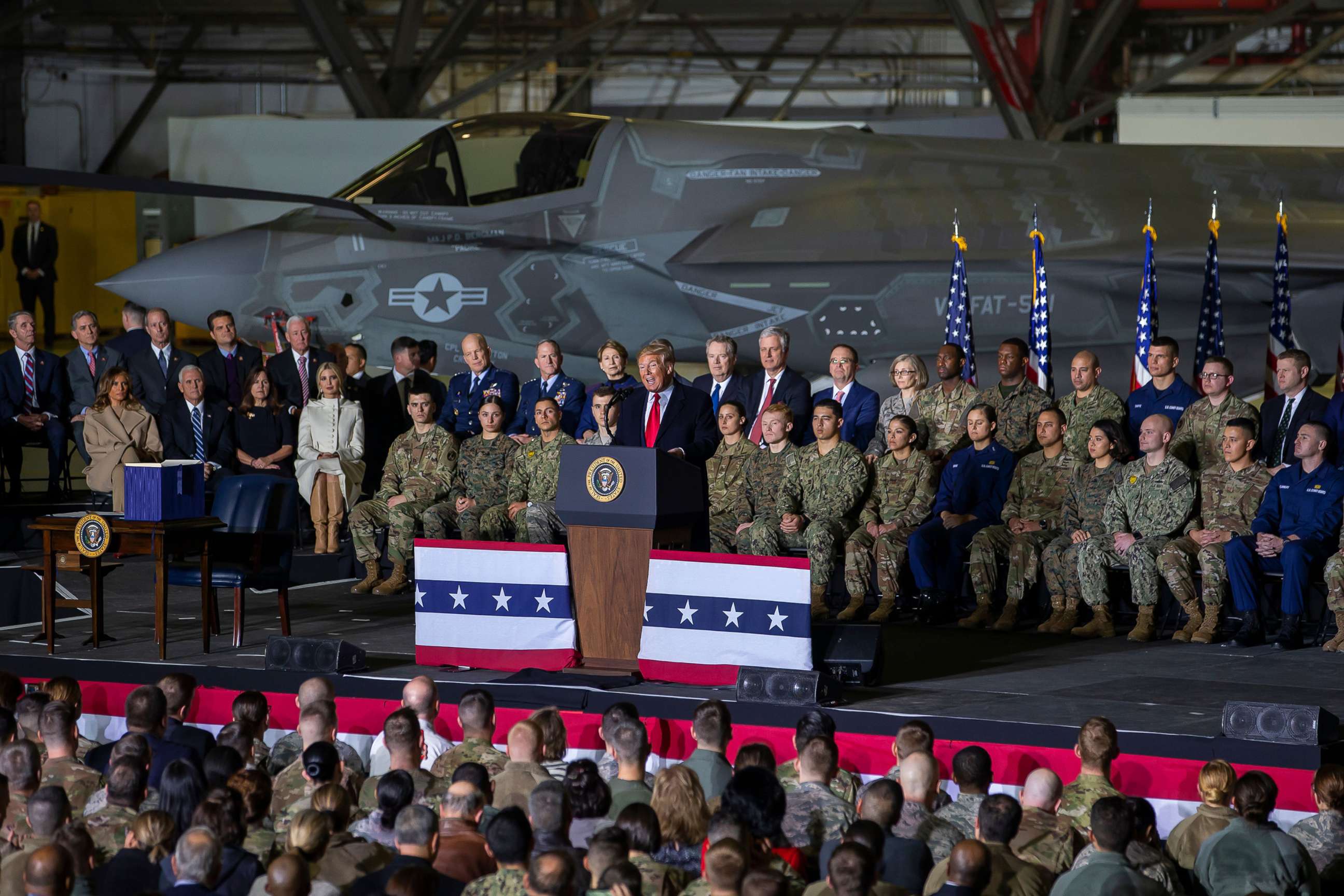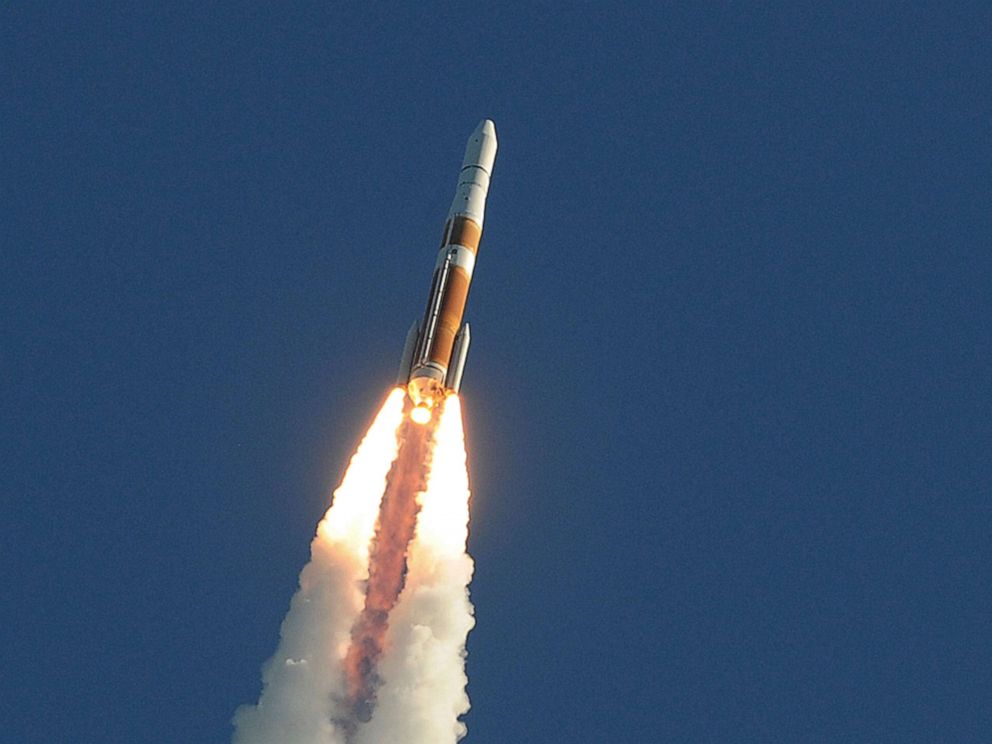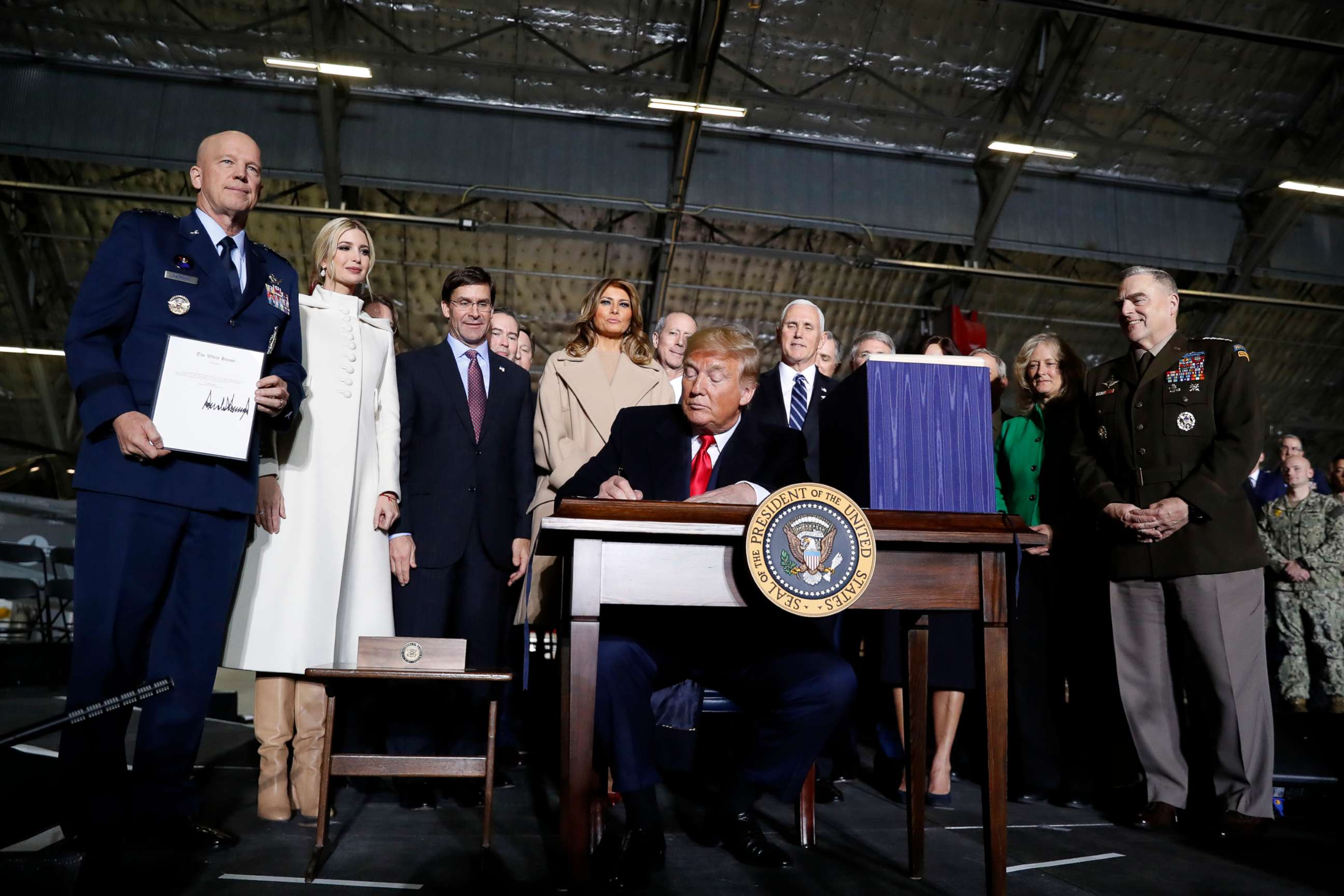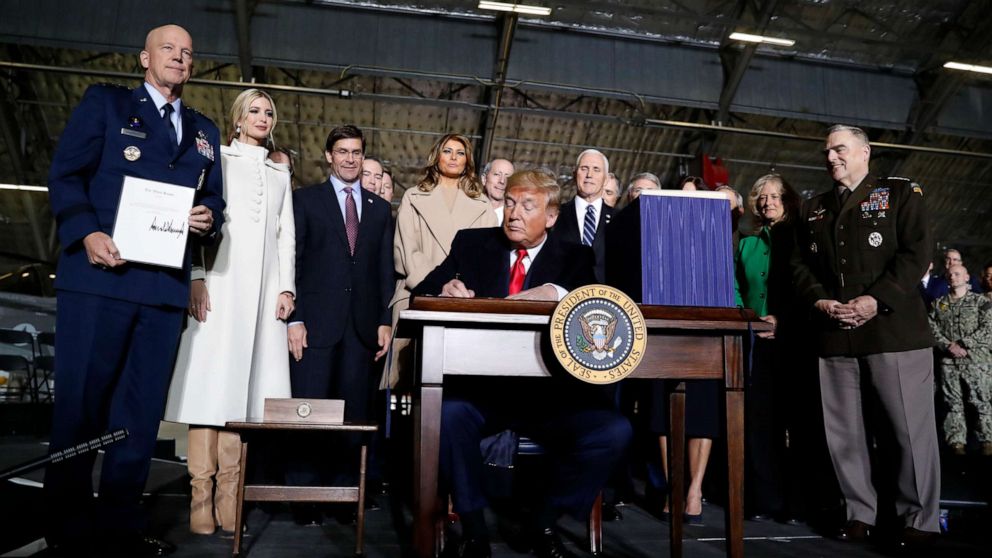Space Force becomes the newest US military service after Trump signs defense bill
The U.S. Space Force has become the nation's newest branch of the military as President Donald Trump signed the National Defense Authorization Act, which authorized the creation of the new military service. Space Force went into operation almost immediately after the legislation was signed into law, but many questions still need to be decided as to how the new military service will function and who will serve in its ranks.
"For the first time since President Harry Truman created the Air Force over 70 years ago, we will create a brand new American military service," Trump said as he signed the defense budget at an event at Joint Base Andrews.
"With my signature today, you will witness the birth of the Space Force, and that will be now officially the sixth branch of the U.S. Armed Forces," Trump said. "The Space Force will help us deter aggression and control the ultimate high ground."

Trump has been a strong advocate for the creation of Space Force, which will become a separate military service alongside the Army, Navy, Marines, Air Force and Coast Guard.
The military’s newest service will fall under the Department of the Air Force, much as the U.S. Marine Corps is a separate service within the Department of the Navy.
The central role of the Space Force will be to organize, train and equip military personnel whose primary job is space operations within the other military services.
"Now is the time to establish a team, a separate service totally focused on organizing, training and equipping space forces," Barbara Barrett, the Secretary of the Air Force, said at a Pentagon press conference Friday afternoon.

U.S. Space Command, created in August, is a warfighting force responsible for defensive and offensive operations in space.
Initially, the new Space Force will be composed of 16,000 active duty Air Force and civilian personnel currently serving with the Air Force's Space Command. That Air Force Command will cease to exist as its personnel are "assigned" to Space Force. In the coming year, some of those personnel will be officially transferred to the Space Force, while others will remain within the Air Force.
Eventually, personnel from the Army and Navy's space programs will be integrated into the new service.
In his remarks Friday night, Trump announced that he was nominating Air Force Gen. John Raymond to head the Space Force. Currently the commander of U.S. Space Command and U.S. Air Force Space Command, Raymond will become the Chief of Space Operations and a member of the Joint Chiefs of Staff.
While the Air Force has carried out significant planning to establish the new service, many questions remain about when they will become a reality.

"There are as you can imagine thousands and thousands of actions that are going to have to take place," Raymond told reporters on Friday. "Everything from what does a uniform look like, to a logo, all the way up to who is in the Space Force and who is not in the Space Force."
Raymond said one thing being looked at is renaming five Air Force bases that currently house much of the Air Force's space operations into Space Bases. They include Peterson AFB, Buckley AFB and Schriever AFB in Colorado, Vandenberg AFB in California, and Patrick AFB in Florida.
"There is an incredible excitement across our service about Space Force," said Raymond. "There are people knocking on the door saying 'Hey, how do we become a part of this?'"
Raymond said decisions about the Space Force's future culture should be made deliberately.
"It’s going to be really important that we get this right," Raymond said. "We’re not going to be in a rush to get something and not do that right."
And that includes determining what should be the new term to describe members of the new Space Force. Will they be called “spacemen”?




